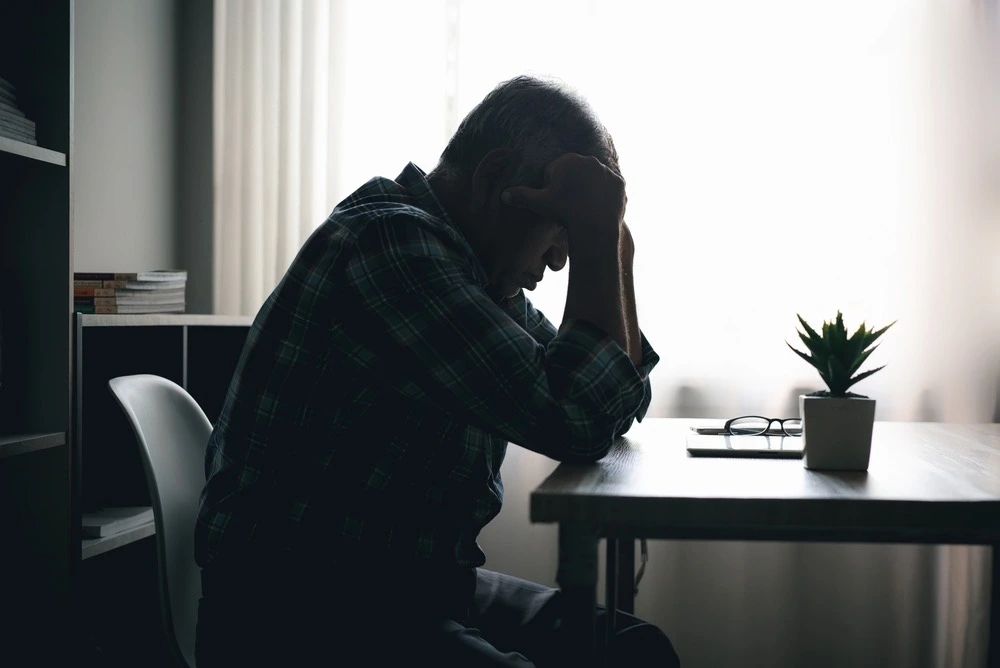Understanding the Marchman Act: What is Marchman Act and How It Assists in Substance Abuse Cases

When someone you care about is in the grip of uncontrolled substance abuse, you may feel helpless. Florida’s Hal S.Marchman Alcohol and Other Drug Services Act, commonly known as the Marchman Act, offers a legal path to get them into treatment, even if they resist.
How the Marchman Act Helps:
- Initiating Involuntary Assessment and Treatment: When a person’s substance abuse poses a danger, the Marchman Act allows loved ones or qualified professionals to petition the court for involuntary assessment and potential treatment.
- Focus on Stabilization and Long-Term Recovery: The goal is to break the cycle of addiction and provide the tools for lasting sobriety.
- Protecting Rights While Securing Care: The Marchman Act balances the need for intervention with the individual’s legal rights.
It’s Not Easy, but It’s Possible: Astor Simovitch Can Help
Understanding the Marchman Act is the first step. Our attorneys have extensive experience guiding families through this process with compassion and legal expertise.
If You’re Ready to Explore This Option:
Schedule a consultation with Astor Simovitch. Let’s discuss your specific situation and how the Marchman Act might be the first step towards your loved one’s recovery.
Key Takeaways
- The Marchman Act is a Florida-specific legal tool that provides for both voluntary and involuntary assessment and treatment of severe substance abuse, allowing intervention even when the individual lacks self-control over their substance use.
- The process for involuntary assessment under the Marchman Act involves filing a petition in the county court. A range of individuals, including family members and healthcare providers, has the right to initiate this process when there is concern about a person’s substance abuse leading to loss of self-control and potential harm.
- In addition to providing immediate crisis intervention, the Marchman Act emphasizes the importance of comprehensive long-term treatment and aftercare to ensure sustained recovery from substance abuse, including various levels of treatment and community support.
Understanding the Marchman Act

The Marchman Act, named after its sponsor Representative Hal S. Marchman, serves as a critical legal mechanism for immediate intervention in cases of substance abuse, including marchman alcohol cases, when deemed necessary. This law stands as a beacon of hope in Florida, a state grappling with an escalating substance abuse crisis. It provides an avenue to facilitate both urgent and sustained interventions specifically addressing severe substance abuse disorders, a challenge that’s become all too common in our society today.
The Drug Services Act covers a broad spectrum of interventions, ranging from voluntary services where individuals willingly seek treatment for substance abuse, to involuntary substance abuse services involving legal intervention when the person has lost self-control over substance use. This comprehensive approach to substance abuse treatment is what makes the Marchman Act a lifeline for many individuals and their families battling addiction.
Purpose of the Marchman Act
In the face of the grim reality of substance abuse, the Marchman Act emerges as a glimmer of hope. It primarily aims to provide assistance to individuals in dire need of involuntary substance abuse treatment, serving as a safety net for those teetering on the edge of self-destruction. The Act is not just about short-term intervention. It also covers both voluntary and involuntary assessment and stabilization for individuals struggling with substance abuse, providing the necessary framework for sustained recovery.
Imagine a scenario where someone you know is spiraling into substance abuse. They’ve lost control, and they’re a danger to themselves and possibly others. You know they need help, but they’re unable or unwilling to seek it. This is where the Marchman Act comes into play. Under the Act, a Petition for Involuntary Assessment may be filed if there is a genuine concern that the individual’s substance abuse has led to a loss of self-control. This process allows for an assessment of the individual’s condition.
Voluntary vs. Involuntary Assessment
One of the unique aspects of the Marchman Act is its provisions for both voluntary and involuntary assessment and treatment for substance abuse. This dual approach allows the Act to cater to a wide range of individuals with varying degrees of substance abuse issues and readiness to seek help. It’s like having two doors to recovery: one where individuals walk in voluntarily, and another where they are guided in when they’re unable to make that decision independently.
Voluntary services under the Marchman Act refer to scenarios where individuals willingly seek assessment and treatment for substance abuse. On the other hand, involuntary services involve legal intervention, or involuntary treatment, when the criteria detailed in the Florida Statutes are met. This typically involves cases where the individual’s substance abuse has escalated to a point where they’re a danger to themselves or others and have lost the ability to exercise self-control over their substance use.
Initiating the Marchman Act Process

Now that we’ve understood the premise and purpose of the Marchman Act, let’s dive into the process. The journey towards recovery under the Marchman Act begins with two critical steps: identifying a person in need and filing a petition for involuntary assessment. These initial steps can be viewed as the ignition key that sets the wheels of the Marchman Act process in motion.
To initiate the process, a petition for involuntary assessment is filed in the county court where the impaired individual resides. This step is crucial in the assessment process. This petition is a cry for help on behalf of an individual who is unable to recognize their need for treatment due to the severity of their substance abuse problem. It’s a legal plea that empowers Florida courts to order emergency evaluations and ensure treatment assistance for individuals facing the grim realities of severe substance abuse problems. In contrast, a voluntary assessment would involve the individual willingly seeking help for their substance abuse issues.
Identifying the Person in Need
The first step in the Marchman Act process is identifying the person allegedly abusing substances. This is often a challenging task, as it requires acknowledging and confronting the fact that someone you know is struggling with a person’s substance abuse problem. However, it is a necessary step to set the ball rolling for the Marchman Act process. The person in question needs to be suspected of having substance abuse issues to qualify for the Marchman Act process.
But who can identify and initiate the process for a person in need? The Marchman Act is designed to enable a broad range of individuals to take this step. This could be:
- a spouse
- a family member
- a guardian
- a licensed service provider who has direct personal knowledge of the individual’s substance abuse impairment
Thus, the Act provides a platform for those closest to the person in need to intervene legally and initiate the recovery process.
Filing a Petition
Filing a petition is the next crucial step in the Marchman Act process. The petition for involuntary services under the Act can be filed by a range of individuals including the respondent’s spouse or legal guardian, any relative, a licensed service provider, or an adult with direct personal knowledge of the substance abuse impairment. The petitioner must be recognized as legitimate by the court, and they must demonstrate a belief in the individual’s substance abuse and loss of self-control, likelihood of inflicting harm, and capacity to make rational decisions.
The process of filing involves the following steps:
- Appearing in person at the Clerk & Comptroller’s office to complete a sworn affidavit for assessment and treatment.
- Providing detailed information about the individual’s behaviors and location in the affidavit.
- Filing the affidavit with the county clerk of court.
- The court reviews a written assessment.
- The court notifies the petitioners of a hearing.
- The court potentially orders an immediate involuntary assessment performed by a licensed psychologist.
The Legal Process of the Marchman Act

After the petition is filed, the legal process of the Marchman Act kicks into gear. This process is not a secluded, behind-the-scenes affair. Instead, it involves a series of court hearings conducted by General Magistrates who are judicial officers with limited authority. These hearings are civil proceedings, and if the individual subject to the hearing is a minor or indigent, they are entitled to a court-appointed attorney.
The Marchman Act stands apart from other laws like the Baker Act, in that it necessitates court participation for involuntary admission, rather than healthcare professionals initiating the admission. Once the court receives a written assessment from the service provider within five days of the assessment, a treatment hearing is scheduled within ten days to consider the recommendation for a minimum of 60 days of treatment.
Court Hearings
Picture a courtroom scene with the General Magistrate presiding over the proceedings. Unlike your usual court hearings, these hearings are in a civil, non-criminal capacity, focused on the wellbeing of the individual in question. During these hearings, testimonies are presented to the General Magistrate, who then makes decisions on enforcing involuntary assessments based on the individuals’ behaviors and situations as evidenced by witnesses.
The court hearing is a pivotal point in the Marchman Act process. Following the hearing, the court may issue an order for involuntary assessment and stabilization for a period not exceeding five days. If an individual absconds from treatment, a new hearing is scheduled, and failure to attend can lead to severe consequences.
Orders and Enforcement
Once the court order for involuntary assessment is issued, the next phase of the Marchman Act process comes into play – enforcement. Law enforcement agencies may be involved to ensure safe and compliant execution of court orders for involuntary or voluntary assessment and stabilization. This involvement ensures that the individual gets the help they need, even if they are unwilling or unable to seek it voluntarily.
Non-compliance with a court order under the Marchman Act can lead to serious repercussions. If an individual does not comply with the treatment order, they can be held in contempt of court, which could possibly lead to detention. A contempt hearing can be requested to address non-compliance, and a status conference hearing will be scheduled accordingly.
After the court’s order for involuntary assessment, the individual is taken into custody and transported to a licensed public facility for a period not exceeding five days for assessment and stabilization.
Treatment and Aftercare under the Marchman Act

While the legal process of the Marchman Act is critical, at the heart of the Act is a compassionate, comprehensive approach to substance abuse treatment. Treatment under the Marchman Act can include detoxification, residential, or outpatient services, depending on the individual’s needs. The initial phase of treatment typically involves a comprehensive assessment to determine the appropriate level of care, followed by placement in a stabilization unit if necessary.
Beyond the initial crisis management, the Marchman Act also offers extensive long-term care options. These include structured programs such as therapeutic communities and long-term residential treatment centers. But the Act doesn’t stop at providing treatment. It emphasizes the importance of aftercare in ensuring continuity of care and supporting long-term recovery post-treatment.
Types of Treatment
The types of treatment available under the Marchman Act are as varied as the individuals it serves. Each treatment plan is tailored to meet the specific needs of the individual, incorporating therapeutic and case management approaches. The Marchman Act facilitates a wide range of programs, including:
- Residential treatment
- 12-step programs
- Dual-diagnosis support
- Counseling
From detoxification to addiction support groups such as Alcoholics Anonymous and Narcotics Anonymous, the Act provides a comprehensive suite of treatment options, including other drug services. When additional treatment is needed after the initial 60 days, an extension can be requested. It’s worth noting that healthcare professionals play a critical role in evaluating individuals and informing the court’s decisions, while recovery is supported by professional interventionists and legal professionals.
Importance of Aftercare
Recovery from substance abuse is not just about getting clean; it’s about staying clean. And that’s where aftercare comes in. Aftercare is crucial as it supports long-term recovery and helps prevent the recurrence of substance abuse problems. Aftercare services are critical in maintaining long-term recovery and preventing relapse by offering ongoing support, accountability, and guidance to individuals who have completed initial treatment for substance abuse.
But what does aftercare look like under the Marchman Act? Specialists can assist families in crafting and overseeing comprehensive treatment solutions, emphasizing the importance of aftercare to support long-term recovery. Community resources such as peer support groups and ongoing counseling services assist individuals in building a sustainable recovery after completing initial treatment. In essence, aftercare forms the bridge between treatment and a life of sustained recovery.
Comparing the Marchman Act to Other Involuntary Commitment Laws

Now that we’ve delved deep into the Marchman Act, it’s worth placing it in context with other involuntary commitment laws. The Marchman Act is designed specifically for substance abuse issues, while the Baker Act is tailored for mental health crises, excluding intoxication and substance impairment. Both the Marchman Act and the Baker Act allow for the involuntary assessment and treatment of individuals who are unable to recognize their need for treatment and pose a danger to themselves or others.
Interestingly, several other states have enacted laws comparable to the Marchman Act, reflecting a broader national framework for addressing involuntary commitment for substance abuse. These laws, like the Marchman Act, are driven by a shared goal: to provide a lifeline to those grappling with the harsh realities of substance abuse.
The Baker Act
While the Marchman Act is designed to address substance abuse issues, the Baker Act targets mental health crises. Named after Maxine Baker, former state representative who sponsored the Act, the Florida Baker Act can result in involuntary examination of individuals who may be a danger to themselves or others. However, unlike the Marchman Act, the Baker Act does not specifically address conditions manifested solely by substance abuse impairment, emphasizing its primary target of mental health crises instead.
The Baker Act and the Marchman Act, both Florida laws, may seem similar on the surface, but they serve different purposes. While the Marchman Act focuses specifically on individuals suffering from severe substance abuse, the Baker Act is designed to manage mental health crises. Both acts, however, share a common goal – providing help to individuals who are unable to seek it voluntarily due to their condition.
Similar Laws in Other States
While the Marchman Act is unique to Florida, several other states have similar laws that address the concern of substance abuse through legal measures. These laws, akin to the Marchman Act, offer a legal recourse for involuntary commitment for substance abuse. However, the specifics and legal procedures involved in involuntary commitment for substance abuse can vary significantly from state to state. Some states with similar laws include:
- California
- New York
- Texas
- Illinois
- Pennsylvania
It is important to familiarize yourself with the laws and procedures specific to your state if you are seeking involuntary commitment for a substance abuse impaired individual.
Many states have established separate provisions for dealing with substance abuse and mental health, akin to how Florida delineates the Marchman Act for substance abuse and the Baker Act for mental health issues that may lead to physical harm. This duality of focus on substance abuse and mental health in legislation is echoed in the distinct approaches represented by the Marchman Act and Baker Act in Florida.
Navigating the Challenges of the Marchman Act
The journey through the Marchman Act process is no walk in the park. While it serves as a lifeline for many battling substance abuse, individuals and families might encounter:
- resistance or reluctance from the person with substance abuse issues when trying to initiate Marchman Act proceedings
- significant impact on personal relationships
- emotional challenges for both individuals and families
But remember, no journey worth taking is ever easy.
Families and guardians may need to consider the implications of the Marchman Act on their finances, as well as the ongoing care responsibilities that may arise. From initiating the process, to navigating the legal proceedings and managing the treatment and aftercare – the Marchman Act process can be a steep learning curve. But with the right guidance and support, it is a journey that can lead to a life reclaimed from the clutches of substance abuse.
Legal Assistance
Navigating the legal maze of the Marchman Act can be intimidating. This is where legal assistance comes in handy. By Florida law, an attorney is required for the Incapacity Proceeding, often the initial step in guardianship cases. The Marchman Act stipulates specific mandatory and recommended forms that are crucial for the legal process and must meet strict requirements.
Leading Florida intervention service companies can provide expertise and help in making informed decisions about the Marchman Act process. With the right legal assistance, you can ensure that everything from the paperwork to the court proceedings is handled correctly, allowing you to focus on what matters most – the recovery of your loved one.
Emotional Support
While the legalities of the Marchman Act are crucial, it’s the emotional journey that often leaves the deepest impact. Emotional support is critical for individuals undergoing treatment under the Marchman Act, aiding their recovery and compliance with the process. Family members, being an integral part of the recovery journey, also require emotional support while navigating the challenges of the Marchman Act process with their loved one.
The Marchman Act process can induce stress for both the individual facing treatment and their family, making emotional support a key component in managing this stress. Effective emotional support can play a role in handling resistance to treatment, encouraging a more willing participation and better outcomes. Remember, recovery is not just a physical journey, but an emotional one as well, and every bit of support helps.
Summary
As we wrap up our journey through the Marchman Act, it’s clear that this legislation is a powerful tool in combating the severe substance abuse crisis. By providing a legal structure for both voluntary and involuntary substance abuse treatment, the Marchman Act offers a lifeline to those in the throes of addiction who are unable or unwilling to seek help voluntarily. With its comprehensive approach encompassing identification, legal process, treatment, and aftercare, the Act serves as a beacon of hope for many grappling with substance abuse.
However, the Marchman Act is not a magic wand that can instantly fix all substance abuse issues. It’s a challenging process that requires commitment, patience, and resilience from both the individual undergoing treatment and their loved ones. But with the right legal and emotional support, navigating the Marchman Act can be a journey towards reclaiming a life from the clutches of substance abuse. Remember, even the longest journey begins with a single step, and the Marchman Act could be that critical first step on the road to recovery.
Frequently Asked Questions
What is the purpose of the Marchman Act?
The purpose of the Marchman Act is to provide assistance for individuals in need of involuntary substance abuse treatment, covering both voluntary and involuntary assessment and stabilization for those struggling with substance abuse.
How is the Marchman Act initiated?
To initiate the Marchman Act, you need to identify a person in need and file a petition for involuntary assessment in the county court where the impaired individual resides. This is the first step in the process.
What happens during a Marchman Act court hearing?
During a Marchman Act court hearing, testimonies are presented to the General Magistrate, who then makes decisions on enforcing involuntary assessments based on the individuals’ behaviors and situations as evidenced by witnesses. This process helps assess and address the individual’s situation effectively.
What types of treatment are available under the Marchman Act?
Under the Marchman Act, available treatment options can include detoxification, residential, or outpatient services, tailored to the individual’s specific needs.
How does the Marchman Act compare to the Baker Act?
The Marchman Act is designed for substance abuse issues, while the Baker Act is tailored for mental health crises, excluding intoxication and substance impairment. Therefore, they serve different purposes.